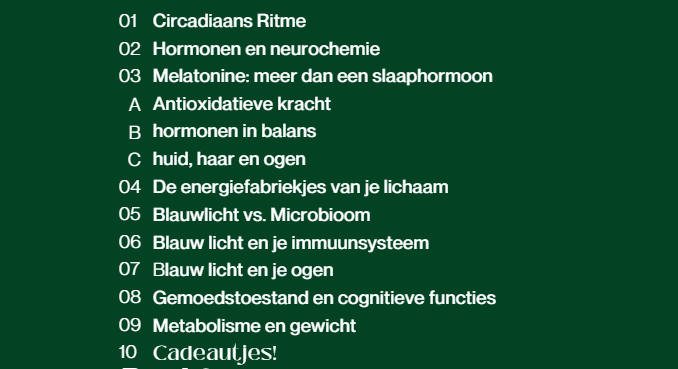How You Eat Affects How You Sleep
A good night's sleep is essential for your physical and mental health. But did you know that what you eat can significantly impact how well you sleep? Certain nutrients play a crucial role in supporting the hormones and processes necessary for deep sleep. In this blog post, we'll discuss which nutrients are important, how to get them from your diet, and how supplementation can help you optimize your sleep.
The Role of Hormones in Sleep
Sleep is largely regulated by hormones like melatonin and serotonin. These hormones work together to regulate your sleep-wake cycle and prepare your body for rest. Here's how they work:
-
Melatonin : This hormone is often called the "sleep hormone." It helps your body fall asleep and regulates your internal clock. Melatonin is produced from serotonin.
-
Serotonin : This neurotransmitter not only improves your mood but also acts as a precursor to melatonin. A serotonin deficiency can lead to sleep problems and mood disorders.
To produce these hormones, your body needs specific nutrients. Let's take a look at what they are.
Nutrients That Contribute to a Good Night's Sleep
1. Tryptophan
Tryptophan is an essential amino acid needed for the production of serotonin and melatonin. You can find tryptophan in foods such as:
-
Meat
-
Eggs
-
Dairy products such as milk and cheese (Raw)
-
Nuts and seeds (such as pumpkin seeds and walnuts)
2. Magnesium
Magnesium is often called the "relaxation mineral." It helps your muscles relax, reduces stress, and plays a role in melatonin production. A magnesium deficiency can lead to insomnia and restless nights. Foods rich in magnesium include:
-
Organ meats (such as beef liver)
-
Nuts and seeds
-
Avocados
-
Dark chocolate
Magnesium supplementation can also be helpful, especially if you struggle to get enough from your diet. Choose easily absorbable forms like magnesium bisglycinate.
3. Vitamin B6
Vitamin B6 is essential for the conversion of tryptophan to serotonin. It also supports melatonin production. Foods rich in vitamin B6 include:
-
Meat (especially beef)
-
Eggs
-
Bananas
4. Zinc
Zinc plays a supporting role in melatonin production and helps regulate your sleep-wake cycle. Good sources of zinc include:
-
Meat (especially beef and lamb)
-
Shellfish such as oysters
-
Seeds (such as pumpkin seeds)
5. Omega-3 Fatty Acids
Omega-3 fatty acids, especially DHA, support brain function and help regulate serotonin. You can find omega-3 in:
-
Fatty fish (such as salmon, mackerel and sardines)
-
The right supplementation (send us an email at info@alinastore.nl for our favorite)
The Importance of Meat and Eggs
Meat and eggs are excellent sources of many of the nutrients mentioned above. They contain not only tryptophan, but also vitamin B6, zinc, and other essential nutrients that contribute to a good night's sleep. Eating a varied diet with plenty of animal products can help improve your sleep quality.
Supplementation: An Extra Boost
While a healthy diet is the foundation, supplementation can be helpful in addressing any deficiencies. Here are some recommendations:
-
Organ supplements : These contain a wide range of nutrients, such as vitamin B6, zinc, and iron, which are essential for a good night's sleep. Liver capsules, for example, are an excellent source of natural nutrients.
-
Magnesium supplements : If you struggle to get enough magnesium from your diet, a supplement can help. Choose forms like magnesium bisglycinate , which are easily absorbed by the body.
Nutrition plays a crucial role in the quality of your sleep. By eating foods rich in tryptophan, magnesium, vitamin B6, and other essential nutrients, you can help your body produce the hormones needed for a good night's sleep. Sleep tight!





The whole story
This e-book discusses the impact of blue light on your health and how you can use it to your advantage. We often only hear about the influence of blue light on sleep, but that's just the tip of the iceberg. Blue light affects your biorhythm, gut health, metabolism, hormones , and much more. This document is designed to give you clear insight into what's really happening in your body and how you can achieve significant health benefits with a few smart choices.
Why?
At Alina, we believe that health starts with awareness. We want to inspire and inform you to take charge of your own well-being. Light is a powerful tool in this process. With this guide, we want to help you develop your own "light blueprint": a practical guide for a healthier, more vital, and more balanced life.
